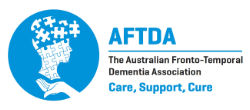Clinical trial of a new treatment for BvFTD/PNFA: Monash University
A Phase 2b randomised controlled trial of sodium selenate as a disease modifying treatment for probable behavioural variant frontotemporal dementia and progressive non-fluent aphasia.
Currently there are no approved treatments for frontotemporal dementia. Patients with frontotemporal dementia often have an excess build-up of the protein tau in their brains, sodium selenate, the drug used in this study, acts to reduce the levels of tau in the brain. The main purpose of this research project is to look at whether sodium selenate decreases the rate of brain shrinkage in patients with frontotemporal dementia. The research project will also look into the effect of sodium selenate on brain function and markers of disease measured on brain scans, in blood, and in the fluid around your brain and spine to see if you are responding to the treatment.
Participation in this study will involve coming to the study doctor’s clinic up to ten times over 64 weeks (15 months). Participants will be randomised to either the study drug, sodium selenate or placebo. Half of the participants will receive the study drug, and half will receive the placebo (a drug that looks like the study drug but has no active ingredient). Neither you nor any of the research team will know whether you are receiving the study drug or the placebo.
The study involves the following assessments:
- 2 x MRI scans (1 at the beginning and 1 at the completion of the study)
- 1 x PET scans (at the beginning of the study)
- Physical and neurological examinations
- Blood tests
- Cognitive tests and questionnaires
This study has been approved by the Alfred Hospital Human Research Ethics Committee (project number: 609/19).
Participant duration:
Attending the study doctor’s clinic up to ten times over 64 weeks (15 months)Available to people living in NSW, VIC.
For further information, please email selenate@alfred.org.au or Lucy Vivash lucy.vivash@monash.edu
The FTD Disorders Registry
The FTD Disorders Registry (FTDDR) is designed to bring together the frontotemporal degeneration (FTD) community – people affected personally as well as those involved professionally. The goal is to work together to bring treatments and cures to this spectrum of disorders included under the umbrella of FTD: bvFTD, PPA, PSP, CBD and FTD-ALS.
Based in the USA, the FTDDR is both a Contact Registry and a Research Registry:
- As a Contact Registry persons affected by FTD, their caregivers, family members, and friends can join and receive emails about FTD including important research updates and study opportunities. Contact Registry enrolment is open to the international community so those impacted by FTD in Australia can join the Contact Registry.
- At present, the Research Registry is ONLY open to people in the US or Canada – the ultimate plan is to roll this out internationally in the future.
The AFTDA supports this registry and encourages everyone involved in any way with FTD to find out more about joining this registry by visiting the registry website here or by catching the latest news on their Facebook page here. All participation is valuable, even participation from people who have already lost a loved one to FTD. Your experience can teach us a lot.
The Royal Melbourne Hospital undertakes research on young-onset dementia
Important research is being undertaken by Dr Priscilla Tjokrowijoto of the Royal Melbourne Hospital. If you are living with young-onset dementia (symptoms before age 65 years old) or caring for someone with young-onset dementia, consider contributing to understanding of services available before, during and after diagnosis by completing the following anonymous survey:
Individuals living with young-onset dementia: click here
Caregivers of individuals living with young-onset dementia: click here
If you are a clinician or service provider for individuals living with young-onset dementia, consider completing the following anonymous online survey: Clinicians working with individuals with young-onset dementia:click here
Professional and community services, including the NDIS: click here
General practitioners:click here
The goal of this research is to inform a national system of care and roadmap of responsibilityfor individuals living with young-onset dementia.
New genetic therapy could be a gamechanger for MND and frontotemporal dementia
From Macquarie University | The Lighthouse
“Macquarie University neuroscientists have developed a single-dose genetic medicine that has been proven to halt the progression of both motor neurone disease (MND) and frontotemporal dementia (FTD) in mice – and may even offer the potential to reverse some of the effects of the fatal diseases.
It may also hold opportunities for treating more common forms of dementia, such as Alzheimer’s disease, which is the second most common cause of death in Australia after heart disease.“




